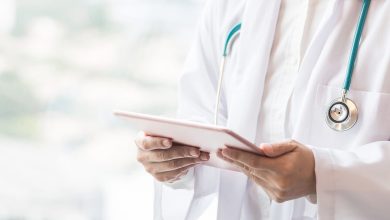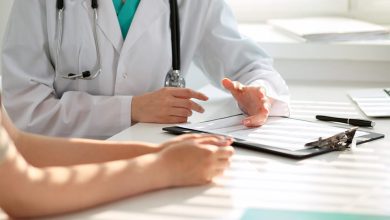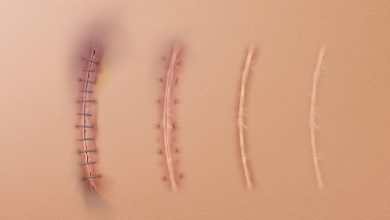Aesthetic Surgery During The Pandemic
The COVID-19 pandemic has caused significant changes in our daily lives. To reduce the transmission risk of corona virus, we have implemented serious social isolation rules. We had to postpone many of planned activities in our lives including travels, social events or treatments such as plastic surgeries.
Since the outbreak of the pandemic, our knowledge about of the disease has grown, we have become more conscious, and we have begun to return to our normal lives a little more with each passing day, with the assurance that vaccination programs have a significant protective effect. Although the threat has yet to passed, we have started putting some of our postponed plans back on track by taking the necessary precautions.
The demand for aesthetic surgeries has begun to rise again in proportion to the effective vaccination or the immunity gained after recovering from COVID-19 disease.
In this article, I’d like to discuss some facts that should be taken into account to have a surgical operation in a safe environment while minimizing the risk of COVID-19 transmission for those who don’t want to postpone their plastic surgery any longer.
Plastic surgery procedures are performed under local or general anesthesia. In general anesthesia, a tube is inserted into the trachea to enable the patient to breath with the help of a respirator device.
If there is a viral infection in the nose and throat area at the date of plastic surgery, these viruses may be transmitted to the lungs through tube application and may result in serious complications.
In this context, aesthetic surgeries performed under local anesthesia can be claimed to be safer. More serious precautions should be taken before plastic surgery operations to be performed under general anesthesia, as there may be some immune system suppression in addition to the risk of virus transmission to the lungs.
The statements below reflect my personal opinions and approach. It should also be noted that there may be different approaches to the issue.
Precautions That Should Be Taken Before Plastic Surgery Operations During The Pandemic
- It is beneficial that you have completed the Covid-19 vaccination program recommended by the Ministry of Health and that at least 2 weeks have passed after your last vaccination. Those who do not get vaccinated are known to experience the COVID-19 disease more severely.
- Starting at least two weeks before the surgery date, the person who will have plastic surgery and those who will share the same space with him/her should practice serious social isolation. When entering indoor spaces, an FFP3 mask should be worn. Those who are unable to wear this mask should at least wear an FFP2 mask.
- In addition to wearing a mask, more attention should be paid to the distance and hygiene rules that we are all familiar with. Hands should be washed frequently, and the eyes should not be touched.
- If there is a history of close contact with any COVID-19 positive individual, it should definitely be taken into account, appropriate isolation should be implemented, and PCR tests should be performed.
- It is necessary to use a private vehicle rather than public transportation to get to and from the doctor’s office before surgery and then to get to and from the hospital.
- An FFP3 masks should definitely be worn when traveling by public transportation vehicles such as trains, buses, or planes and they must not be removed during the journey.
- If the patient will travel from another city to the city where the aesthetic surgery will be performed, and is he/she will use public transportation vehicles such as buses or planes for long periods of time, it is helpful to arrive at least one week before the surgery date. It is beneficial to wait for a certain period of time for a possible transmission in public transportation vehicles and common areas such as airports to appear clinically and be detected by PCR test.
- During the preoperative period, more attention should be paid to the any symptoms of COVID-19 disease. Complaints, such as loss of taste and smell perception, fever, weakness, cough, muscle and joint pain should not be considered unimportant, and the necessary actions should be taken. In the diagnosis of COVID-19 disease, PCR testing alone should not be relied on. It should be remembered that PCR tests cannot diagnose all cases and may result in false negatives in some cases. Therefore, if the slightest symptom mentioned above is observed, the physician should be informed, and the surgery should be postponed if necessary, even if the PCR test is negative.
- During the pandemic, it is necessary to rest well and eat healthily in the preoperative period of a plastic surgery operation. Products such as alcoholic beverages, cigarettes etc. should not be consumed.
- If there are chronic diseases such as high blood pressure, thyroid gland diseases, or anemia, a specialist physician in the relevant branch should be consulted before having a plastic surgery operation. It is necessary to reveal the current condition and make sure that these diseases are under control and blood values are normal.
- In addition to the COVID-19 measures, many drugs and nutritional supplements with a blood thinning effect, such as aspirin, green tea, and fish oil, should be discontinued. For more information on this topic: https://en.cengizacikel.com/preoperative-preparation/
Precautions to be Taken In the Doctor’s Office
- The office should have excellent ventilation, and ventilation should be performed before admitting each patient.
- If possible, disposable covers should be used on surfaces that the patient will come into contact with, such as the surfaces of examination table etc. Other surfaces that the patient may touch, such as door handles and seat edges, should also be wiped using detergent and antiseptic liquids before admitting each patient.
- There should not be more than one patient in the doctor’s office at the same time.
- If possible, patients should come to the practice alone, or with no more than one companion.
- During the admittance, the HES Code (a private personal code intended to prevent or slow down the spread of the pandemic) should be checked.
- At the entrance to the practice, disposable shoe covers should be worn, and hands should be washed with hand disinfectant.
- Adequate time should be allowed between the interviews with two patients to ventilate and clean the room.
- In addition to opening the windows for ventilation, air filtering and cleaning devices should be used.
- During the interview with the patient, all air blowing devices should be turned off and air circulation should be kept at a minimum level.
- Both the patient and the physician should wear FFP 3 masks during the interview and examination.
- All personnel working in the doctor’s office should undergo regular health checks, their body temperatures should be taken and HES codes should be checked.
Dos and Don’ts In The Hospital
- An FFP3 mask should be worn during the preoperative interview with the Anesthesiology and Reanimation Specialist, as well as during any blood tests or PCR tests which are deemed necessary.
- After the hospital admission procedure are performed for surgery, the patient should avoid unnecessary walking around the hospital and stay in the room assigned to him/her.
- If possible, no one should accompany the patient. If a companion is needed, his or her HES code and COVID-19 symptoms should be checked.
- When any healthcare personnel enters the patient’s room, he/she should wear a mask, and care must be taken to ensure that everyone wear a mask in the room.
Dos and Don’ts At Home After Surgery
- Following the patient’s discharge from the hospital after plastic surgery, there are some precautions to be taken against COVID-19. First of all, visitors should not be accepted and adequate ventilation should be provided in the room.
- Hygiene rules should also be observed at home, and close contact with other individuals sharing the same house should be avoided. Especially if other people go to work or school every day, more attention should be paid to social isolation.
- It is critical to be cautious about the signs of Corona virus disease as well as potential complications of plastic surgery. Any symptoms should be reported to the physician immediately.
- To improve the body’s resistance, the patient should rest, eat well, and drink plenty of fluids
How To Wear A Mask?
We now know that wearing proper and effective masks reduces the risk of Corona virus transmission, even if they cannot provide 100% protection. However, how to select and wear a mask is still poorly known. First and foremost, there should be no air entry from the edges of the mask.
The gap left at the sides of the nose, in particular, usually allows direct air entry. In such cases, staying in indoor environments for an extended period of time causes an increased risk of virus transmission. Therefore, edge-sealing should be provided by making sure that the mask completely covers the nose and its surroundings, as well as the lower chin and cheeks. In other words, when we breathe, we should inhale only the air that passes through the mask.
The layers of the mask determine how much virus remains in the air after it has passed through them. In this context, the most effective virus filtration is provided by masks called FFP3 or N95. For those who have never worn these masks, it can be difficult to wear them for an extended period of time. FFP2 masks do not provide as much protection as FFP3 masks, but they are far superior to standard surgical masks used on the street.
It not only covers the nose better than an ordinary mask, but also filters the air better since it has more layers. I wear ordinary masks only while walking on the street. I always wear an FFP3 mask when entering indoor areas such as markets, banks or hospitals.
Another thing to keep in mind when choosing a mask is that masks with an air release valve are not a right choice. These masks have a one-way valve system that enables the person wearing the mask to breathe out more comfortably, and they are designed for those who work in dusty environments.
When wearing such a mask, we should keep in mind that we are blowing our breath directly to the people in front of us and into the environment. Therefore, we should either not wear a valved mask at all or wear a second ordinary mask over this mask to prevent our breath from entering the environment directly.
Can People Who Have Had COVID-19 Disease Before Have Aesthetic Surgery?
The answer to this question varies depending on the date of the disease and the clinical picture experienced. If your COVID-19 infection was mild enough so that you did not require hospitalization, you can have surgery 8 weeks after you recover. If you had the disease with a more severe clinical picture, you had better wait a bit longer until you fully recover from the disease.
The length of recovery process varies from person to person. The condition of your lungs, heart, and other organs should be evaluated with much more closer examinations. As a result, if you have had Corona virus disease before, you should definitely inform your physician to clarify your condition.
Another factor to consider in this regard is the extent of the aesthetic surgery to be performed. For example, the risks of an upper blepharoplasty operation to be performed under local anesthesia will be lower than the risks of a more invasive procedure such as mammoplasty-abdominoplasty combination to be performed under general anesthesia.



